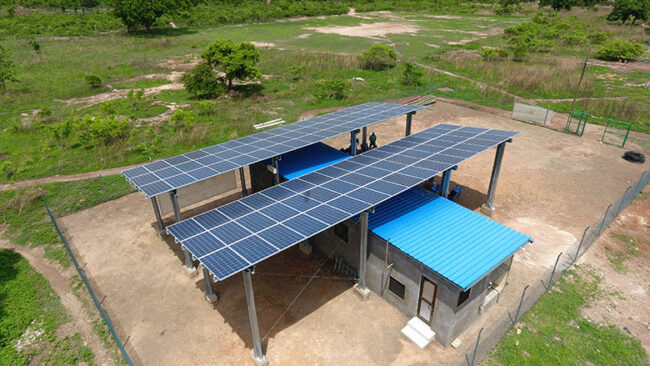Climate change directly affects our communities, health, and livelihoods.
Yet, media coverage often prioritises politics and business over climate-related stories, leaving crucial environment news under-reported.
Climate Watch seeks to bridge this information gap, ensuring that important climate change stories and mitigation efforts stay on your radar.
Here is a round-up of last week’s climate stories:
Advertisement
- Imaan Sulaiman-Ibrahim, the minister of women affairs, says the federal government is set to transition one million households from firewood-based cooking to cleaner and more sustainable energy solutions. Sulaiman-Ibrahim spoke on February 7 during a citizen engagement news conference in Abuja to mark her first 100 days in office.She said the initiative is part of the government’s commitment to promote gender-responsive climate action and improve the well-being of women and vulnerable populations.
Sulaiman-Ibrahim said the ministry’s broader agenda is to empower 10 million women by 2027, ensuring they play a critical role in Nigeria’s economic transformation.
The minister said a major step towards achieving this goal is the implementation of the World Bank-supported ‘Nigeria for Women Scale-Up Project’, which aims to benefit 4.5 million women across the 36 states and the federal capital territory (FCT).
“In this regard, we are working to transition one million households from firewood-based cooking to clean and sustainable energy solutions,” she said.
Advertisement“This aligns with President Bola Tinubu’s vision of a $1 trillion economy, where women are key contributors to national productivity.”
-
The Nigerian Meteorological Agency (NiMet) has released its 2025 seasonal climate prediction (SCP), forecasting an early onset of rain across the country. Festus Keyamo, minister of aviation and aerospace, said the annual seasonal prediction is critical to ensure the safety, efficiency and sustainability of air navigation business and that of other sectors. Keyamo said there would be delayed onset of rain over the northern states, while the southern states are likely to experience early onset of rain. He noted that high-intensity rainfall is expected in May to June, which may likely result in flash floods in the coastal cities. Find out more here.
- The Nasarawa government says it has secured a $160,000 grant from the African Climate Foundation to develop a climate investment platform (CIP) for the state. Speaking during a stakeholders’ meeting on the CIP project in Lafia on February 3, Ibrahim Abdullahi, the managing director (MD) of the Nasarawa state Investment Development Agency (NASIDA), said the platform will boost clean energy solutions. Abdullahi said the project would enhance climate-smart agriculture, construction, and other climate-related initiatives. Read more here.
- The Nigerian National Petroleum Company (NNPC) Limited says its joint venture (JV) with First Exploration & Petroleum Development Company Limited (First E&P) has reduced routine gas flaring by 96 percent in two fields. In a statement on February 6, Femi Soneye, NNPC’s chief corporate communications officer, said the stride supports Nigeria’s climate goals to reduce greenhouse gas emissions by 20 percent unconditionally and 47 percent conditionally. Read more here.
-
Simon Stiell, executive secretary of the United Nations Framework Convention on Climate Change (UNFCCC), has implored countries to submit their nationally determined contributions (NDCs) by September 2025. Stiell said the new climate plans are in the interests of nations’ economies and their citizens, as they are “blue prints for stronger societies”. He added that the NDCs must ensure increased funding, in order to build clean and resilient infrastructure that will help harness the power of cheaper and cleaner energy. Read more here.
-
The European Union’s Copernicus Climate Change Service (C3S) says January 2025 was the hottest January on record. In its report, the organisation said January 2025 was 1.75°C above the pre-industrial level, and the 18th month in the last nineteen months to surpass the global average surface air temperature of 1.5°C. C3S said January 2025 saw an average surface air temperature of 13.23°C, 0.79°C above the 1991-2020 average. Find out more here.
Advertisement
Add a comment








